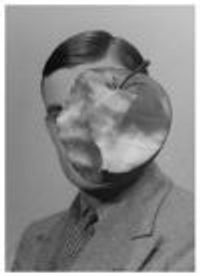Colin firth in A Single Man
#25Colin firth in A Single Man
Posted: 7/14/10 at 12:14pmReally.......I had no idea he directed that movie. He's such a hottie.
Roscoe
Broadway Legend Joined: 5/15/03
#26Colin firth in A Single Man
Posted: 7/14/10 at 2:45pm
The novel is not as funereally grim as Ford's appalling film. George isn't planning to kill himself in the novel, for one thing. And the novel actually displays Christopher Isherwood's remarkable sense of comedy, in ways that joyless hacks like Tom Ford can't possibly appreciate.
And there's the choking sentimentality at work in the film as well.
SPOILERS -- BEWARE
That hideous ending of the film is an atrocity. In the film, George goes swimming the Hot Student and, just as he gets his mojo and desire for life back, dies of a heart attack. That loadedly symbolic clock stops ticking, George's late lover Jim appears to guide George into the afterlife, it is just puke-making.
Isherwood's novel takes a different path. Throughout the book, Isherwood has employed an unnamed narrator who describes what George does, what he thinks, etc. The narrator describes the ending of the novel in different terms. Basically, George wakes up to find himself alone, masturbates, and falls back to sleep. But the narrator continues, describing an imagined set of "almost indecently melodramatic circumstances (in the narrator's own words)-- the buildup of placque in George's arteries that will lead to the imagined death." The narrator even goes so far as to tell the reader,
Quoting from the novel below:
"Let us suppose this, merely. (The body on the bed is still snoring.) This thing is wildly improbable. You could bet thousands of dollars against its happening, tonight or any night. And yet it could, quite possibly, be about to happen-- within the next five minutes.
Very well--let us suppose that this is the night, and the hour, and the appointed minute.
Now---
The body on the bed stirs slightly,(....)"
There follows the rather disturbing description of George's body shutting down. The late Jim does not appear to take George to his eternal reward, and is not even mentioned in what follows.
As should be evident in the quoted bit above, there's a marked lack of sentimentality in Isherwood's novel (George's imagined remains are described as being "cousin to the garbage in the container on the back porch."). I don't think the same can be said of Ford's film, with Jim's immaculately well-groomed re-appearance to guide George to homo-hereafter, and the (to me, at least) blatantly silly device of the ticking clock.
Ford, clueless as Rob Marshall, decides to go for the weepy irony of having George Die Just As He Decides To Live. Stop Tom Ford before he desecrates any other great works.
#27Colin firth in A Single Man
Posted: 7/14/10 at 4:25pm
Interesting.
Having seen the film but not read the book, I'm interested to learn that the suicide contemplation wasn't in the book: it didn't sit easily with me when I watched the film, seeming a bit of an obvious and soapy gesture.
I'm also interested to learn that the heart attack was not definite in the book and that death was contemplative. I instinctively felt his heart attack was a bit too much of an ironic coincidence.
I did feel the film communicated well how grief can begin to lift through the most unexpected and inconsequential of things.
So, go on Roscoe, enlighten me on that one as well...
#28Colin firth in A Single Man
Posted: 7/14/10 at 4:44pmI think the grief of the character in the movie was fetishized in a way that it wasn't in the book. What I found so beautiful about the book was how grief (or anger or whatever large emotion you deal with when a major life event happens) can simply bubble up and inform your life at any moment. It's actually kind of the opposite of what you just stated. Instead of the grief being the focus (with life's daily moments relieving it), it's life that is the focus and how small moments can be colored by the emotions involved with the grieving process. In that regard, I found the theme of the book more true to (my) life experience than the film.
Roscoe
Broadway Legend Joined: 5/15/03
#29Colin firth in A Single Man
Posted: 7/14/10 at 4:47pm
Robbie, you phrase it brilliantly. The Fetishization of George's grief is one of the film's worst qualities.
Scripps, why don't you enlighten me as to how the film communicates so well about grief. I thought the film was far too shallowly directed and acted, to say nothing of aridly composed and posed and lit and designed and polished and buffed and dressed and combed and coiffed to actually deal with anything as messy as actual human emotion.
Q
Broadway Legend Joined: 11/3/05
#30Colin firth in A Single Man
Posted: 7/14/10 at 4:51pm
"George isn't planning to kill himself in the novel, for one thing."
This is incredible to me, as it was the plot device that drove almost the entire picture.
#31Colin firth in A Single Man
Posted: 7/14/10 at 4:54pm
I try my best, Roscoe!
And, Q. Have you not read the book? You simply must. You'll absolutely adore it!
Q
Broadway Legend Joined: 11/3/05
#32Colin firth in A Single Man
Posted: 7/14/10 at 5:07pm
I have it, but I've been trying to wade through what has turned out to be a rather stodgy biography of Isherwood first ![]()
This discussion is making me want to just go ahead and read it now, though.
#33Colin firth in A Single Man
Posted: 7/14/10 at 5:13pm
Simply because it resonated with my own experience.
For me grief was some kind of subconcious funk that massively slowed down the pace at which I lived my life. I didn't need bereavement counseling, or moving city, or friends trying to cheer me up or distract me, though I had them all. Then what I got, as in the film, was a charming and twatlike teen saying something whose relevance they had no idea of and the funk began to lift.
#34Colin firth in A Single Man
Posted: 7/14/10 at 5:38pm
Thank you for all of the responses...After thinking about it, I came up with my answer why I loved this movie.
I didn't know who Tom Ford was
I never read the book
We rented this movie because it was the last "Best Actor" nominee that we hadn't seen.
What I saw was pure Brilliance! I loved Colin Firth and if I was in the Academy I would have voted for him.
I then thought about why I loved this movie so much...Answer...It was very personal for me.
You see, I was Charlette(Charley) and not only had one gay friend, I had three...who all died very young...Sammy(Aids)Tommy(Cancer)Johnny(Suicide)...so i cried through the whole movie.I guess I was blinded by heart break...I had to watch it again and I loved it more, with commentary this time.
Just to set the record straight, I lost my three friends in the 80's not the 60's...and I miss them dearly.
FindingNamo
Broadway Legend Joined: 7/22/03
#35Colin firth in A Single Man
Posted: 7/14/10 at 5:46pmAfter surviving Liza as Sally, Isherwood would probably not be rolling over in his grave over Firth/Ford.
#36Colin firth in A Single Man
Posted: 7/14/10 at 5:59pm
Grief wasn't Colin Firth sat on the edge of a bed contemplating a gun.
But it was him going through the motions of his life; existing amongst everything that hadn't changed and yet being totally removed from it. And much of his personal experience being located in a sixties museum added to the sense of other worldliness.
#37Colin firth in A Single Man
Posted: 7/15/10 at 10:16pm
I LOVE this film.
The book is one of my favorites, and though different, I thought the film was brilliantly directed and completely terrific.
Firth deserved to win, and Moore deserved a nomination for supporting actress far more than Anna Kendrick or Penelope Cruz did.
#38Colin firth in A Single Man
Posted: 7/17/10 at 9:00pm
very touching Kristie and I agree with you. i don't look at this film in the "director" way and rip it apart.
i love Colin and think he is highly underrated and this film is brilliant.
Videos





